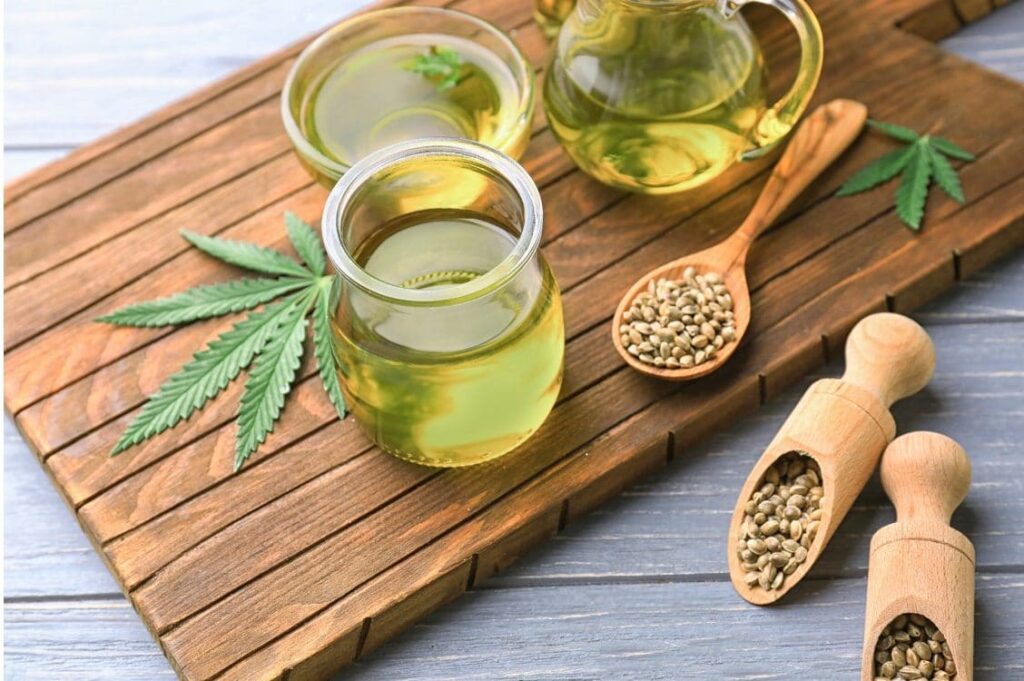
CBD and THC are both cannabinoids found in cannabis, although their differences are not commonly known. While CBD and THC share some similarities, they diverge significantly in various aspects. In this blog, we will delve into both CBD and THC, exploring the effects each compound has on your mind and body and how they can be harnessed to your advantage.
Both CBD and THC are cannabinoids, naturally occurring chemical compounds found abundantly in cannabis. These compounds interact with pre-existing cannabinoid receptors within the body. Interestingly, CBD and THC share a common chemical makeup consisting of carbon, hydrogen, and oxygen. Their distinct structural arrangements, however, set them apart from each other. This slight variation in structure contributes to the wide-ranging effects they have on humans.
Due to differences in their chemical structures, CBD and THC produce varying effects on the body and mind. THC, the psychoactive compound in cannabis, activates cannabinoid receptors in the brain, leading to increased blood flow to the prefrontal cortex and an elevated sense of reward. This is what causes the characteristic “high” associated with cannabis use.
CBD oil does not induce a high. Its unique properties are as intriguing as THC’s. When CBD interacts with cannabinoid receptors in the brain, it counteracts psychoactivity. This quality suppresses psychoactive effects, resulting in calming and anti-stress effects. Additionally, CBD is believed to have neuroprotective, anti-tumour, and anti-anxiety effects. Different cannabis strains contain varying levels of CBD and THC, potentially inducing anxiety or promoting calmness.
CBD is gaining recognition as a legitimate medicinal substance, and a variety of products are now available commercially, including CBD e-liquids, CBD oil, and edibles, offering diverse consumption methods. CBD is currently being utilized in the treatment of various illnesses such as migraines, nausea, multiple sclerosis, arthritis, and insomnia.
The primary active component in recreational cannabis is THC, often chosen for its relaxing and psychoactive effects. Recreational users commonly highlight its pain-relieving properties. THC’s anti-nausea properties are recognized globally.
CBD is legally accessible and can be prescribed by doctors under UK law. CBD oils extracted from UK hemp should contain no more than 0.2% THC to ensure non-psychoactivity.
Conversely, THC remains illegal for recreational use in the UK, classifying cannabis as a class B drug with potential penalties of up to 5 years in prison for possession. However, the trend of legalizing cannabis for medical and recreational purposes is spreading. The USA and Canada have embraced legalization, and recently, Portugal, the Netherlands, and Spain have adopted a liberal approach to personal cannabis use.
Since my original blog post, the landscape surrounding medical cannabis access in the UK has transformed significantly. Today, medical cannabis is accessible to patients under medical supervision. As a medical cannabis user myself, I have experienced firsthand the relief and improvements it can offer for various health conditions. This shift toward recognizing cannabis’s medical potential signifies a promising direction, offering hope to individuals who can now explore its therapeutic benefits within a legal framework. As of 2023, accessing medical cannabis in the UK is possible for those meeting specific criteria. Researching more and consulting a medical professional can guide you in determining if cannabis is the right medicine for your needs.
Please note: This blog post reflects historical data predating recent changes in cannabinoid laws, medical cannabis regulations, and some of our best CBD product names, strengths, and formulations. These historical blogs remain as a reference post our website update, but they might contain outdated information. Discover our updated CBD and legal cannabinoid products for the best CBD experience.